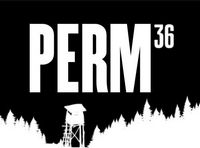The Perm Regional Court has sentenced 35-year-old photographer Grigory Skvortsov to 16 years in a high-security penal colony on charges of treason (Article 275 of the Criminal Code) related to a publicly available book about Soviet bunkers. His support group reported the verdict.
The prosecutor had requested an 18-year prison sentence.
Skvortsov denied the charges, calling them “absurd.”
The Perm resident was detained in November 2023. For a long time, his relatives did not know the nature of the accusations. In 2024, Skvortsov wrote in a letter from the detention center to the “First Department” that he was accused of treason because he allegedly gave the American journalist a book titled Soviet “Secret Bunkers”: Urban Special Fortifications of the 1930s–1960s by historian Dmitry Yurovkov. The book is based on declassified information about Soviet fortification structures.
Later, the photographer clarified that although the book was mentioned in the case, he did not give the journalist the book itself. According to Skvortsov, he found online schematics showing the locations of special facilities that had been publicly available for decades “with the connivance of the FSB and GUSP.” He noted that these schematics remain freely accessible on the internet. He also purchased from Yurovkov, the author of the work on bunkers, photographs of declassified archival documents included as additional materials to the book. These materials were promoted by Yurovkov’s friends in their blogs and in the Russian Newspaper.
In the end, Skvortsov gave the journalist the photos he bought from Yurovkov and the schematics he found online. He said he intended to share this information with the public but, after learning about the authorities’ interest, forbade the journalist from publishing the data.
“The investigator ignored my testimony that I did not use the book itself, only the additional materials. He still sent the book for examination, not the electronic document,” the photographer said. According to him, the investigator claims that Skvortsov himself created the “electronic schematic” rather than finding a ready-made plan showing the locations of special sites.
The photographer reported that after his arrest, security forces beat him, forced him to say on camera whom he had sent the data to, and themselves “suggested” the journalist’s name. Skvortsov also said they extracted passwords for his devices from him.
Grigory Skvortsov is an opponent of the war. During the investigation, he was held in the Moscow pretrial detention center SIZO-2 “Lefortovo.”
Source: OVD-Info
Additional information: BBC


